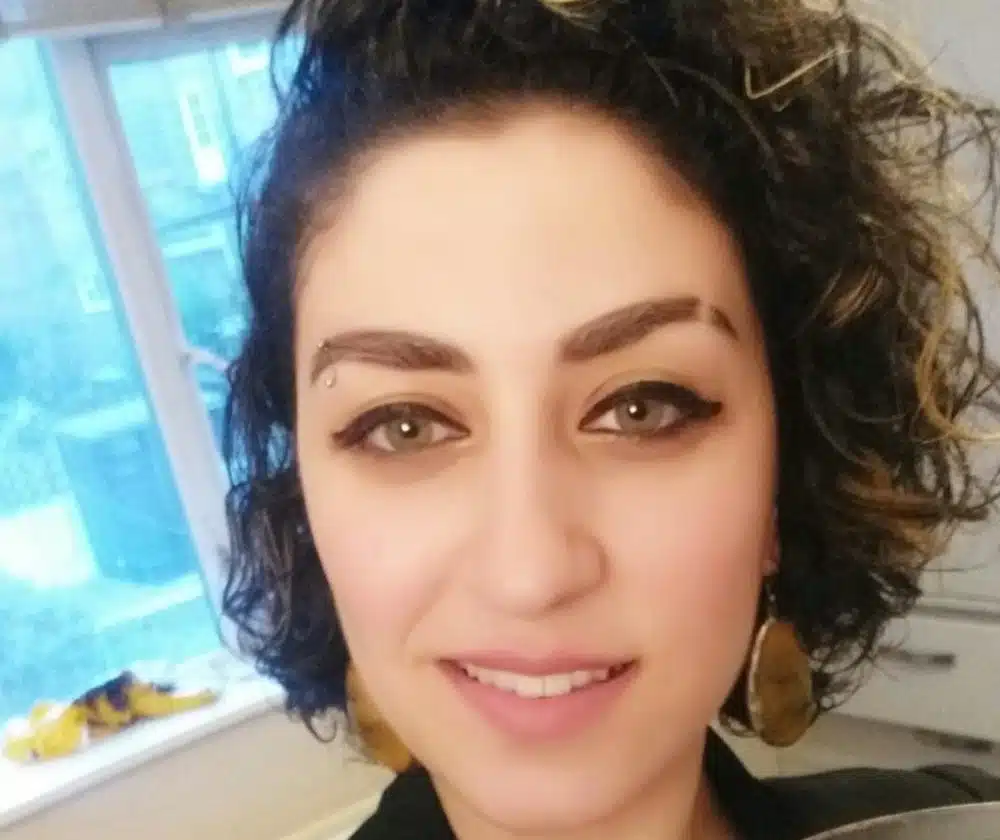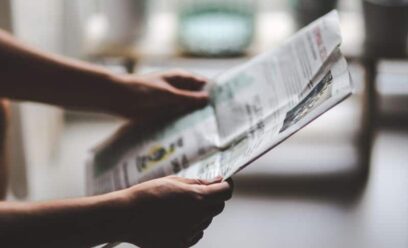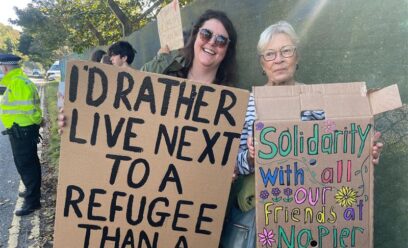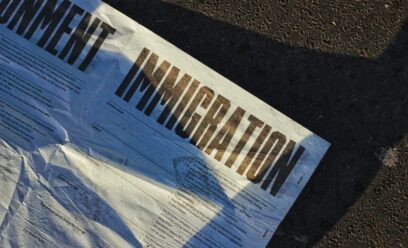‘I want to become a role model for young girls’
Posted by IMIX on April 9, 2020Nour Jarrouj came to the UK as a master’s student, after winning a scholarship for her civil activism during the Syrian war. She faced a lot of difficulties before settling in London but always remained determined. Now, she empowers refugee women by teaching them how to become confident cyclists and break free from social barriers.
In Syria, I used to be a civil activist. I founded my own non-profit called Art of Humanity, to create a free space for young Syrians to express themselves through art. We organised a lot of art events for young people in Damascus and Homs so that basically we could stay sane throughout the war. It was a way to avoid the country’s violence, to forget about all political and religious differences, and to advocate for gender equality and peace-building.
I also volunteered with a lot of local NGOs, trying to help internally displaced people and to offer psychological support to the kids affected by the war. I eventually ended up working for the UN to help vulnerable people.
Following my passion for civil activism, I applied for the Civil Society Leadership Award, a scholarship program for civil leaders. I successfully got a scholarship for an MSc in Violence, Conflict and Development at SOAS University in London. It was an amazing opportunity to study not only what causes the war and why it happens, but also how to rebuild countries and people affected by it.
So that’s how I came to the UK, back in September 2018. I had mixed feelings before arriving here. I was really happy about this achievement in my career path, both as a woman and as an activist in Syria. But at the same time, I had a personal self-conflict. I was wondering: ‘Am I selfish for doing that?’ I was leaving my family and my friends behind to pursue my dream. Then I realised that ever since I was 17, I had worked for my community, I have done my part for now and it was time for me to follow my own path.
I am one of the privileged Syrians that are able to speak English and don’t look Arab. So, because of this, I didn’t suffer from racism or xenophobia in the UK as much as other people I know. But it was annoying because all the time people kept telling me that I looked Italian or Spanish, but no, I am Syrian! Why don’t I look Syrian? What do they want me to look like, a kebab roll?
I still had some hard times. One time, while talking to my mum in Arabic on a video call, a middle-aged white man I bumped into told me to go back to my country. Why would you tell someone that? Diversity is what makes London famous and vibrant. I don’t think you can achieve a multicultural London that you’re so proud of if we go back to our countries right?
Also, I couldn’t find a house. I started searching for one before moving to London so that I was already settled. But none of the landlords accepted me. When I used to tell them I was from Syria, they’d block me over WhatsApp. They were basically judging me before they knew me.
I couldn’t find a flat before coming to the UK and when I arrived had to jump from one place to another. I was living in hostels and at a friend’s house, until I eventually managed for my university to be my guarantor and only then, could I rent a flat-share with other friends from university.
I was kicked out from five different banks because they didn’t want to open a bank account for me. I was investigated just because I came straight from Syria to the UK. I now have an account, but still have many restrictions with what I can do with it.
These are all struggles I had to deal with just because of my nationality. And I am still very privileged, I know other Syrians who have struggled with a lot more things.
To someone else undertaking my same kind of journey, I’d say: just be resilient. I tried to be as prepared as I could before moving, but I ended up looking for a flat for three months and if it wasn’t for SOAS, I would have never been able to get one. Be prepared on a mental and psychological level that you will be judged and categorised just because of your nationality.
The fact is that the landlords, the banks, the whole UK should change. There should be more awareness not to generalise all Arabs, Syrians, or all refugees. People shouldn’t be put all in the same category just because they come from a certain country or speak a certain language or follow a certain religion.
I brought a lot of things with me from Syria. For example, a jar of my mum’s Makdoos, a small traditional dish made of aubergines stuffed with pepper, garlic and walnuts. It’s delicious but it makes me very nostalgic because it is homemade. For this reason, I cannot eat it too much, it’s just for special occasions. I usually eat it when I really miss my mum because I know her hands touched it. I also brought with me posters and pictures made by my sister and my best friends, and a Syrian handmade key hanger from my grandmother. All of these objects mean a lot to me and I carry them wherever I go.

Homemade Makdoos
I was one of the first women to cycle daily in Damascus and use my bike as a means of transportation. This is uncommon in Syria because girls don’t cycle too much, as our society objectifies women, and it is socially frowned upon for women to use a bike. I was almost run over by a car just because I was cycling in my hometown. But for me it was the best solution to get to university and my part-time job, because in Damascus during the war transportation costs were really high due to the fuel crisis.
In 2014, in Syria, I joined an initiative with a couple of friends, and we pushed a lot more women to cycle. We became hundreds and then thousands, from all ages and different religious backgrounds. It was a gender revolution and a victory for Syrian women!
When I finished my masters here in the UK and was looking for a job, I used the keywords ‘cycling’ and ‘women empowerment’ during my web searches. This took me to The Bike Project, a charity that helps refugees and asylum seekers to become confident cyclers. In the UK, refugees only receive £5 a day, which is definitely not enough to pay for all of their expenses in London, so this is why using a bike is the best way to move around.
I became the project manager of a Pedal Power which aims to help refugee women to cycle and become confident enough to ride on the roads here in the UK. We also encourage them to volunteer in the office or become bike mechanics which is a field where there are not many women. We are not just teaching them how to ride a bicycle, save money and be environmentally friendly, but also how to become independent, break social barriers and feel free and strong.
After I came here, I grew a lot. I became more mature, responsible and independent because I was not under my parents’ wings anymore. I am constantly working on my self-development and trying to exceed my own expectations.
This thought helped me to go through the bad times. I want to make a better future for myself and show that you can never generalise nor underestimate women, particularly Syrian women!
When I was growing up in Syria, I was made to believe by my society that I could not accomplish anything. But I remained determined because I was inspired by other achieving-women from my social circle. Such as mum and sisters. I want to be that role model for other younger girls as well. Even if you are from a developing country that doesn’t treat women with equality, your achievements and your independence will force any doubters to respect you!
Women can be very strong, smart and achieving, there’s nothing impossible for them. I want to teach girls to believe in themselves, and that nobody can stop them from pursuing their dreams. They just have to spread their wings and fly into a future of opportunities.




